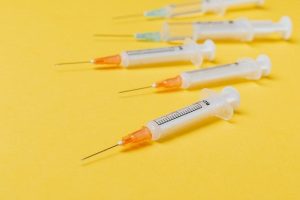A steroid injection boasts among the most effective methods for easing pain, but these don’t cure the root cause of the issue. The premise is to aim for a high medication dosage to the localized inflamed area. Learn details about steroid injections at https://www.nhs.uk/conditions/steroid-injections/.
The injections comprise a synthetic drug reminiscent of “cortisol,” a naturally occurring hormone within the adrenal glands. The term “steroid” is, in fact, short for “corticosteroid.” These are not the same compounds that many sports enthusiasts promote.
They can be referenced as steroid shots, cortisone injections, corticosteroid injections, or cortisone injections. The goal is to slow the immune system while easing inflammation. Claims suggest that injections have the capacity to treat many sorts of inflammatory conditions. Let’s look more in-depth at steroid injections.
Table of Contents
Are There Repercussions To Having Steroid Injections
Before a medical provider recommends a steroid injection, the practitioner will consider a few variables, including your physical activity level, age, and any medications you’re currently taking.
The pain relief received from a shot will differ for each individual, with the response ranging between 24 and 48 hours and effects enduring for as long as several weeks, perhaps longer, depending on the person. Side effects note to be rare, but they are possible and include:
- Allergic sensitivity
- Altered mood
- Skin color change
- Bleeding
- Fatigue
- Tendon rupture
- Infection
Claims suggest that there is the possibility for tendons, ligaments, and bones growing weak with frequent injections in the exact location. Again, the side effect won’t affect everyone and will be less likely if there’s a greater span between injections, roughly four months.
Are There Benefits To Having Steroid Injections
A local steroid injection is unlikely to create severe side effects compared to other versions of steroid medications. The idea is to ease joint inflammation for greater mobility.
By taking injections, there is less likelihood you would need to be placed on oral steroids or perhaps elevated doses of these which note the possibility for stronger adverse reactions. Click for facts on corticosteroids.
Are there times a doctor would not recommend a steroid injection
If an inflamed area is infected, your medical provider will avoid steroid shots or if there’s an infection in another area of the body.
The provider will also recommend not using this technique if there is severe damage within the joint because the consensus would be that the injection would not be helpful in that instance.
For individuals taking anticoagulants, often referred to as blood thinners, or if you have an issue with bleeding, these injections can result in a bleed. The physician will put much forethought into whether these are wise in those situations.
Usually, bone or cartilage (tissues) grow weak over time when you have injections as great as four times in a given year in a single area.

What Role Do Steroid Injections Have In A Care Plan
Your medical practitioner will determine whether steroid shots should be a part of your care plan based on many variables that the provider will consider.
If it is decided that you should take these, they might be one solution in conjunction with other components of a formulated treatment plan.
Some other things that might be considered to go hand-in-hand include physical therapy, pain meds, occupational therapy, anti-inflammatories, or medical devices like braces or a cane.
If perhaps tendinitis is your only diagnosed health issue, you might only need a local steroid injection for that specific problem. However, if you suffer from maybe “rheumatoid arthritis,” there will still be varied components to your care plan aside from these shots.
Final Thought
One thing that stands out above all else on the summary of steroid injections, visit steroidinjectionslondon.co.uk for more information, is the fact that individuals need to recognize that these shots are not a cure. These aren’t meant to resolve the problem.
They help with the symptoms of the root cause, but they don’t eliminate that underlying issue. It’s essential to recognize that fact when you’re deciding on whether you want to include this in your care.
That’s especially true when you consider the fact that frequent shots have the potential for weakening tissues, and if you have severe joint damages already, these will be less effective.
Always take careful forethought and consult thoroughly with your medical provider when making any decision that impacts your wellness.

